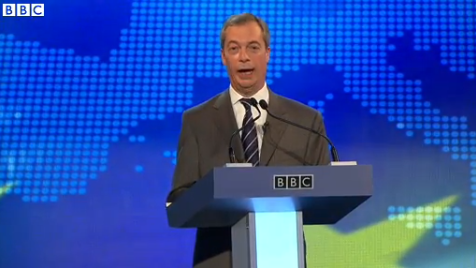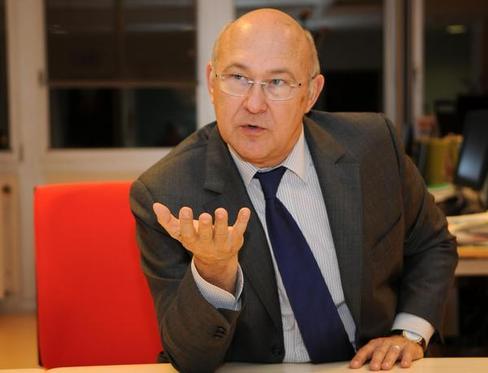It’s not hard, watching the two debates over future British membership in the European Union, to see why Nigel Farage, the leader of the euroskeptic United Kingdom Independence Party (UKIP), is such a successful politician.![]()
![]()
In the last of two debates with deputy prime minister Nick Clegg, the leader of the Liberal Democrats, Farage asked voters in his closing remarks to ‘join the people’s army and topple the establishment that got us into this mess.’
British viewers apparently agree — in an instant Guardian poll following the debate, they believed that Farage won the debate by a margin of 69% to 31%. The debate precedes the May 22 elections to determine the United Kingdom’s 73 members in the European Parliament.
If former prime minister Margaret Thatcher was the British answer to US president Ronald Reagan, Farage (pictured above) is its answer to Newt Gingrich in his ability to lead an anti-establishment political revolution. In the same way that Thatcher reshaped the Conservative Party in the anti-government, pro-market mould of the US-style conservatism, Farage is reshaping the way that Britons conceive the debate over EU membership, just as Gingrich rewired the nature of political debate in the United States — by attacking the consensus of a longstanding political elite through a simple, compelling message that scrambles the traditional lines between left and right.
Farage is doing to ‘Brussels’ exactly what Gingrich did to ‘Washington.’
Farage’s performance has been so smooth, it’s tantalizing to wonder just how well he might do in a four-way televised debate in the campaign for the May 2015 parliamentary elections alongside not only Clegg, but also Conservative prime minister David Cameron, and Labour Party leader Ed Miliband — or how effective Farage might be leading the ‘no’ campaign in the pending 2017 EU membership referendum, a vote that Cameron was forced to promise to hold (if reelected next year) largely as a result of UKIP’s rise in popularity over the past two years.
Here are just three examples from Wednesday’s debate that show just how effective Farage can be — he manages to argue against EU membership as a champion of greater globalization, of protecting minorities and the working class, and of greater world peace.
You don’t have to buy what Farage is peddling in order to acknowledge that he’s devastatingly effective in framing the UK-EU debate in uniquely new and powerful ways.
It’s no longer an academic point.
A March 26-27 YouGov poll for The Sun shows a three-way race in the European elections: Labour wins 28%, UKIP wins 26% and the Tories win 24%, leaving the LibDems far behind at 11%. Nearly one in two Conservative voters from 2010, and nearly one in five Labour voters, plans to back UKIP. Among the most likely to vote, UKIP leads with 30%.
Continue reading UKIP’s Farage is winning the British debate on Europe

